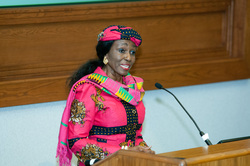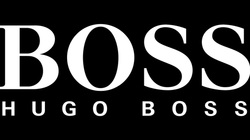|
Founder of DotConnectAfrica Sophia Bekele explains her story and how Africa is engaging with new technology, her .africa campaign and long term career and entrepreneurship.
0 Comments
This video message was delivered by Dr. Maya Angelou on behalf of the American people in memory of Nelson Mandela.
Follow Erika Amoako-Agyei: Twitter: http://twitter.com/Erika_Amoako LinkedIn: http://www.linkedin.com/pub/erika-amoako-agyei/4/882/4a6 Facebook: Africa Business Review Face Page Facebook: http://www.facebook.com/AfricaBusinessReview Website: www. AfricaBusinessReview.net Website: www.AfricaIntercultural.com  In a speech that examined the growing role for women in a rising Africa, Ghana’s former first lady also called for a critical look at the sustainable well-being of Africa's women and children. Mrs. Nana Konadu Agyeman-Rawlings, wife of former Ghanaian President Jerry Rawlings, and head of the 31st December Women’s Movement, delivered her remarks recently at the Thunderbird School of Global Management, in Glendale, Arizona (click: photo gallery). On the topic “Development, Politics and National Government—Impact on African Women,” she recalled her work “as an African woman who has spent her last 30 years working on behalf of our nation’s women and children at the grassroots.” “Women are 51 percent of Africa’s one billion people and they make up the majority of its poor,” she noted. “Those living in isolated rural communities are not yet part of the good news story. “Together with children, these women often suffer the most, especially in times of crisis and unrest. For the masses of women, Africa is rising—but slowly and unevenly—and unfortunately many women are not rising with it. "In some African countries, poverty has increased in spite of GDP growth,” she emphasized. "According to the Africa Development Bank, 61% of Africans still live below the $2 poverty line--and the majority of these people are women. So, yes, Africa is rising, but major challenges still abound: the need for inclusion and opportunity; the need for jobs; the need for equal access to healthcare and education." Mrs. Rawlings then highlighted efforts being made to ensure that education is inclusive, that teachers are gender sensitive and curricula relevant to girls’ aspirations but warns: “Today, we take it for granted when we find African women as university professors, leading doctors in national hospitals and prominent professional businesswomen. But educational development in Africa is not impacting on women as effectively as it does on men. “Girls are taken out of school to help in economic activities such as helping mothers sell in the market or work on farms. Marrying girls off at an early age is still a common practice. "Even when women were able to advance beyond the sixth year in school, in many African countries including Ghana, old practices restricted the advancement of women. "In addition to these restrictions, the traditional beliefs that certain professions are not for women persist so that in spite of all the progress made, most women are discouraged from entering into higher institutions for engineering, medicine and science and mathematics related disciplines. “As the continent becomes more prosperous and more attractive to the outside world, our challenge—and the challenge of our national governments—is to address continuing inequality so that all Africans, including those living in isolated rural communities, fragile states and poor urban areas, are able to benefit from economic prosperity. “It is up to us, the women of Africa, to share the responsibility for actions needed to end poverty—first in our homes, then in our communities and, ultimately, throughout our nations, one woman at a time.” Follow Erika Amoako-Agyei:
Twitter: http://twitter.com/Erika_Amoako LinkedIn: http://www.linkedin.com/pub/erika-amoako-agyei/4/882/4a6 Facebook: Africa Business Review Face Page Facebook: http://www.facebook.com/AfricaBusinessReview Website: www. AfricaBusinessReview.net Website: www.AfricaIntercultural.com Click Here to WATCH VIDEO:  "European brands are seeing a slowdown in their home market, as economies in sub-Saharan Africa begin to grow, and they want to grab a piece of the pie." - Market Analyst, Bismark Rewane Mohmmad Ayyoub, Hugho Boss store manager, says the brand always has a following there: "We didn't do any advertising," he says. "We didn't do anything outside, we just opened the shop and start business . . .[people] are hungry for brands." But the Hugo Boss brand is not cheap. Costing around 1000 U.S. dollars, an average Hugo Boss suit is around 28 times the average Nigerian salary. So the question is: who can afford this? While the majority of shoppers in Nigeria won't be able to buy brand Boss, the small minority of oil rich elite will. Market analyst Bismarck Rewane says luxury brands are increasingly looking to the African continent. "I will say that 90 percent of the elite in Nigeria buy their consumables or their luxury brands outside of Nigeria. The transition from being destination shoppers to being origin shoppers is just going to start." Hugo Boss is already looking at opening in other major cities. Other luxury brands have already seen success in Nigeria. Porsche recently opened a showroom in Lagos. And LVMH has a significant foothold in Africa. But it's still very much an untapped market. As Rewane says, "It's a good sign that we are starting but we are way behind the rest of the emerging markets in terms of positioning ourselves as a luxury goods market in the world." That's unlikely to be the case for long. European brands are seeing a slowdown in their home market, as economies in sub-Saharan Africa begin to grow, and they want to grab a piece of the pie. Source: Reuters Africa Follow Erika Amoako-Agyei: Twitter: http://twitter.com/Erika_Amoako LinkedIn: http://www.linkedin.com/pub/erika-amoako-agyei/4/882/4a6 Facebook: Africa Business Review Face Page Facebook: http://www.facebook.com/AfricaBusinessReview Website: www. AfricaBusinessReview.net Website: www.AfricaIntercultural.com |
AuthorErika Amoako-Agyei is an experienced intercultural trainer & consultant, working with global companies, schools and organizations expanding into Africa. Her company is Africa Intercultural Consulting. She specializes in cross-cultural training with a focus on business communications. For nearly a decade, she worked internationally for the IBM Corporation, including several years in Ghana, Nigeria, Sierra Leone, South Africa, Gambia, Liberia and other countries as a Regional Manager. Archives
December 2015
|
